AlLiS

The research project "Algorithm literacy and sourcing skills in extracurricular educational settings" (AlLiS) consists of two complementary research strands examining how algorithm literacy and sourcing skills can be fostered among adolescents in extracurricular educational settings. Together with adolescents and educators, we develop interventions, which will be made accessible for further usage as open educational resources. The research strand “Algorithm Literacy“ focuses on promoting adolescents’ algorithm literacy in order to facilitate their digital participation, while the research strand “Sourcing Competence“ concentrates on the interplay of algorithm literacy and sourcing skills in the use of online information on socio-scientific topics. The research project seeks to combine research knowledge of both communication science and educational science, and is funded by the German Federal Ministry of Education and Research.
HEATCOM

HEATCOM investigates how people behave in heat situations, which factors influence their protective behaviour and which interventions can contribute to health-promoting adaptation. HEATCOM generates evidence that can be used by relevant organisations, authorities and the public health service to design specific communication campaigns and intervention programmes. The results are made available to the public on the website.
Contact: Mirjam Jenny
Planetary Health Action Survey (PACE)

PACE creates a clear picture of public perceptions and attitudes, as well as the level of knowledge in the population on the subject of crises, climate and health. PACE also investigates the potential impact of various behavioural interventions. The results are made available to the public on the website.
JITSUVAX
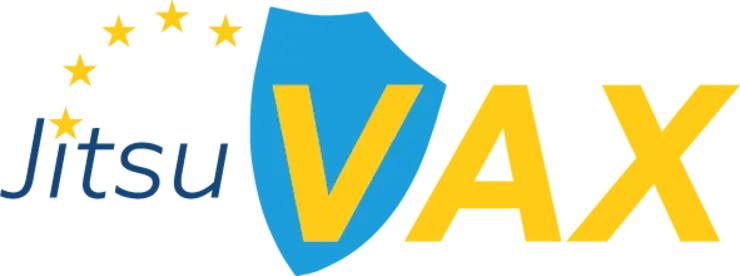
JITSUVAX is a project funded by the EU Horizon 2020 research and innovation programme, coordinated by the University of Bristol, working with five other EU institutions and one in Canada. The project will run from May 2021 to September 2025 and we will develop training procedures, apps and guides that can be used to support healthcare professionals in tackling vaccine misinformation. These will be shared widely and free of charge across Europe and beyond using existing health networks.
Health Games

The aim of the interdisciplinary research project "Health Games: Overcoming the social dilemma in vaccination decisions and antibiotic consumption" is to develop strategies to increase the willingness of the population to be vaccinated and to reduce excessive antibiotic consumption. In three work packages, we are building on the tried and tested research approach of analysing social-interactive health decisions through interactive decision-making tasks (Health Games). The project, which is being carried out in cooperation with the University of Copenhagen and the Robert Koch Institute, is funded by the German Research Foundation (DFG).
Changing Minds

In the international study "Changing Minds", we are working with Professor Michael Weinstock (Ben-Gurion University of the Negev, Israel) and Professor Sarit Barzilai (University of Haifa, Israel) to investigate how laypeople perceive, evaluate and explain changes in scientific consensus. The aim is to convey changes in scientific consensus as well as controversies between scientists as an important part of knowledge generation in science.
voLea-TraIn - Transfer and individualisation of video-based teaching and assessment modules on conversation skills in medical studies

Conducting dialogue with patients is one of the core tasks of doctors. However, the comprehensive promotion of such skills in medical studies poses a major challenge for medical faculties in view of the large number of students. voLea-Train is a BMBF-funded joint project between the University of Erfurt and the Department of Medical Didactics at the Technical University of Munich. In the project, we developed digitally supported modules for training and assessing dialogue skills in medical students. In the current project phase, these modules are being transferred and used at several partner universities. We are adding feedback features to the test developed in Erfurt to enable it to be used in teaching as a diagnostic tool to accompany learning.
FBDGVisual
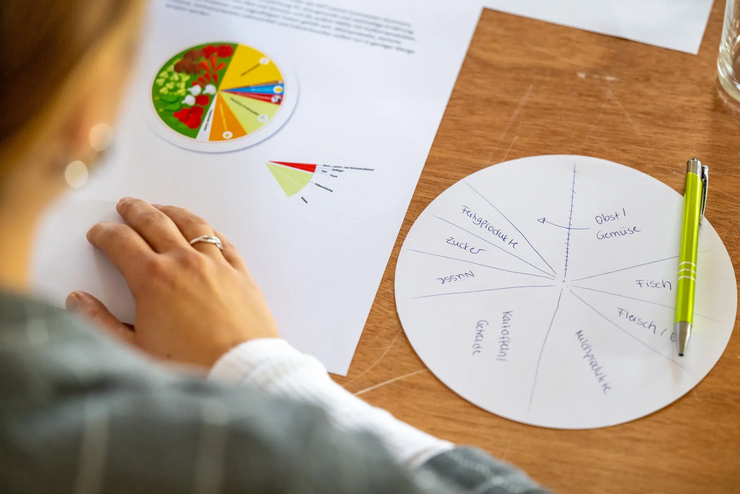
The aim of the FBDG Visual joint research project is to examine existing visualisations for food-based dietary guidelines (FBDG) based on specific reception criteria for different target groups. Based on qualitative studies, we want to use creative techniques to identify the challenges for the target groups (e.g. children, adults, senior citizens) and develop ideas for suitable forms of visualisation. Quantitative studies will then be used to review these measures and adapt them if necessary. The researchers will then transfer the optimised visualisations into analogue and digital measures and test them.
UncertainTEAM

In the project UncertainTEAM (fundet by the Germany Ministry for Education and Research), we are investigating how journalism and science communication deal with scientific uncertainty and how different social groups relate to scientific uncertainty. From these results, we derive concrete ways of depicting uncertainty and test them empirically. We focus especially on different groups in society who deal differently with social crises – we ask, for instance, how we can convey scientific uncertainty to science sceptics without further fuelling a loss of trust. And how can we create a critical awareness and understanding of uncertainties among people who blindly trust science? The project combines basic research with applied questions to derive evidence-based recommendations for the successful communication of scientific uncertainty.
KEEP Panel
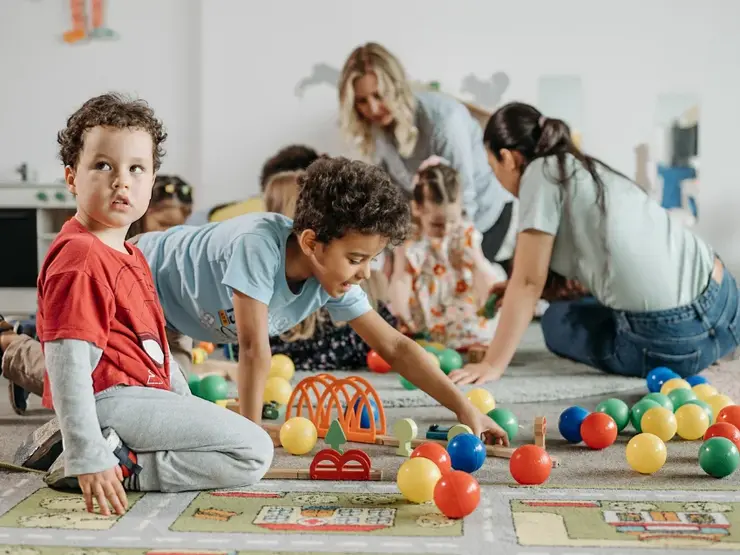
Decision-making skills are a key developmental task and the basis for a self-determined life and social participation. A better understanding of these processes is important from the perspective of both basic research and application. Adult decision-making has long been the subject of intensive research. But what developmental steps lead to decision-making competence in complex modern environments? How can this be promoted? Specifically, the KEEP panel is investigating which factors determine the cognitive development of decision-making skills from primary school age onwards. Further information on the KEEP panel can be found on the project page. This can be found as a subpage on the website of the ErfurtLab.
Ado Trust
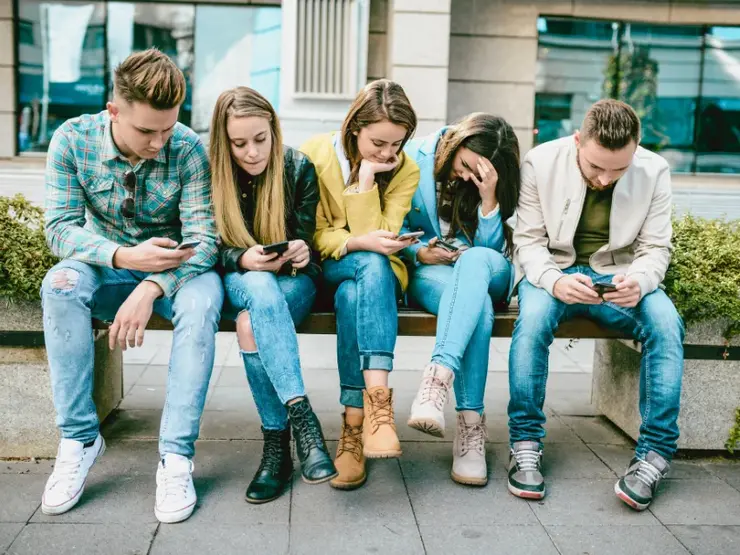
In the project "Factors of adolescent's trust in news media", together with colleagues from various universities, we are investigating how trust in media and credibility assessments develop in young people, what expectations they have of the media and which socialisation instances have an influence on this.
Audience image in journalism
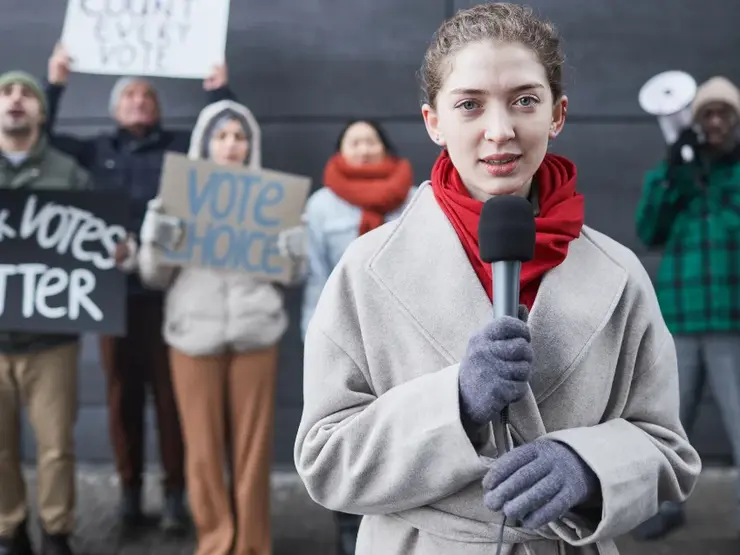
The project uses surveys of journalists and audiences to investigate what ideas journalists have about their audience, how they observe it and how correctly they assess the opinions, attitudes and knowledge of the audience. The focus is on the topic of climate change and climate reporting.
Concern-Behaviour-Gap

In recent decades, representative surveys in Germany, but also in many other countries, have repeatedly reported a growing environmental concern, i.e. the knowledge and realisation that man-made climate change will lead to serious problems in the (near) future. At the same time, however, it has also been observed that this increased environmental awareness is not being translated into environmentally friendly (everyday) behaviour to the same extent. This weak correlation between environmental awareness and action is also referred to as the concern-behaviour gap. We use representative surveys and experiments to investigate the role played by the costs of environmentally friendly action (e.g. We use representative surveys and experiments to investigate the role played by the costs of environmentally friendly action (e.g. switching to green electricity or buying sustainably produced products), the framing of the decision situation (e.g. gain or loss frame) and possible neutralisations and rationalisations (e.g. "No matter how you behave as a consumer, environmental destruction will continue") in explaining this concern-behaviour gap.


